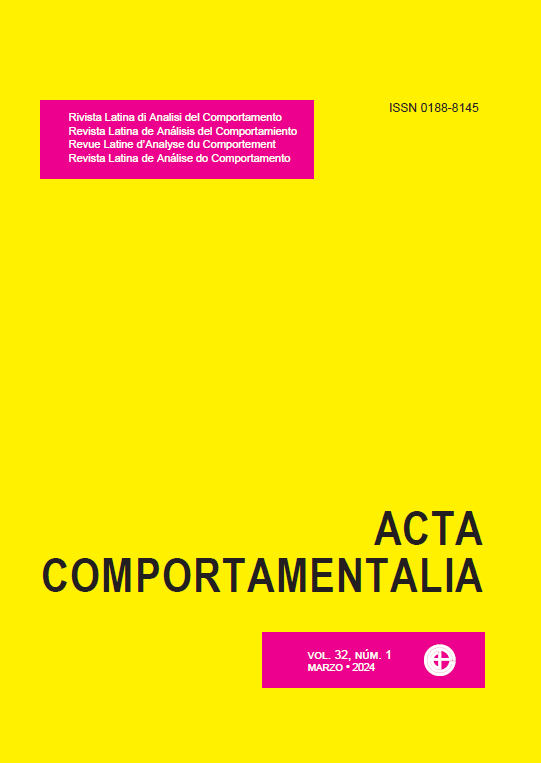Effects of Communication Training in College Students With Autism Spectrum Disorder
Main Article Content
Abstract
Communication and social interaction difficulties are among the criteria for the diagnosis of Autism Spectrum Disorder (ASD). The measures of ASD incidence worldwide have been increasing over the last decades. A great amount of effort has been done to advance basic and applied knowledge to face such socially relevant issues. Much of the research effort has been focused on early interventions in the development of verbal repertoire in children diagnosed with ASD. Nevertheless, there is a considerable population of teenagers and autistic adults requiring qualified attention to integrate themselves in higher education and job opportunities. Considering that verbal and social limitations greatly contribute to academic deficits in people diagnosed with ASD, more research concerning the development of such repertoire in applied context, such as college classrooms, is needed. This study evaluated, in two autistic university students, the effectiveness of a social stimuli discrimination training and communication skills training to promote the occurrence of verbal responses in the following categories: preference communication, opinion statement, asking questions, starting a conversation, and intraverbal turns. A multiple baseline design among participants was implemented with measures of the training effect on each of several behavioral categories. The training procedure comprised role-play with positive and corrective feedback and the presentation of textual and visual cues. The results showed an increase in the frequency of most categories of trained responses, with an eightfold increase in intraverbal turns for one of the participants. The data also show the need to implement procedures to enhance performance maintenance. This intervention contrasts with the trend of research in the area where neurotypical pairs are also trained to establish interactions. The conclusions point to a viable alternative to promote autonomy in students with ASD in real situations in the teaching institutional environment, based on the discrimination of the ongoing reinforcement contingencies and acquisition of verbal responses that may be more likely to be positively reinforced. The simplicity of the procedure implemented and the behavioral gains observed encourage the continuity of the research line such towards the promotion of formal programs featuring evidence-based procedures to assist college students diagnosed with ASD in Brazil.
Article Details
Citas en Dimensions Service

<a rel="license" href="http://creativecommons.org/licenses/by-nc-sa/4.0/"><img alt="Licencia de Creative Commons" style="border-width:0" src="https://i.creativecommons.org/l/by-nc-sa/4.0/88x31.png" /></a><br />Este obra está bajo una <a rel="license" href="http://creativecommons.org/licenses/by-nc-sa/4.0/">licencia de Creative Commons Reconocimiento-NoComercial-CompartirIgual 4.0 Internacional</a>.
